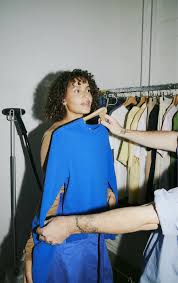
Case Studies: Success Stories from Leading Clothing Manufacturers
The manufacturing of clothing is a vast and complex industry that plays an important role in the global fashion landscape. If you’re a budding fashion designer, a company owner, or simply interested in how your clothes are made and how they are made, knowing the clothing manufacturers is essential. This article will provide you with a comprehensive overview of what you should be aware of concerning clothing manufacturers.
Types of Clothing Manufacturers
Full-Price Manufacturers (FPMs) They take care of all aspects of the manufacturing process including design and pattern making to sourcing materials, manufacturing, and even packaging. They provide a complete solution for businesses looking for one-stop shopping for all their apparel needs.
Cut, Make, Trim (CMT) Manufacturers: CMT manufacturers focus on the production of garments based on designs and specifications supplied by the client. They handle cutting the fabric, making the garment, and then adding trimmings. The client is accountable for sourcing the materials and managing design and quality control.
Original Equipment Manufacturers (OEMs) OEMs make clothing based on specifications and designs provided by a different brand or company. These manufacturers often work with brands well-known for their clothing lines, however they are not always involved in the creation process.
Original Design Manufacturers (ODMs): ODMs offer design and manufacturing services. They often employ their own designers, and they can create garments that are based on their own designs, or modify existing designs. Brands may choose to use the existing designs or work in conjunction with ODM to create new ones.
Choosing the Right Manufacturer
Selecting the best clothing manufacturer is a critical choice that will determine the performance of your fashion business. Here are some important factors to take into consideration:
Quality: Review the quality control procedures of the manufacturer and previous work to determine if they meet your standards. Request samples to evaluate the quality of workmanship and the materials.
The capacity and lead time: Ensure the manufacturer is able to handle your order volume and will be able to meet your production deadlines. This is especially crucial if you have special seasonal collections or release dates.
Cost: Compare pricing from various manufacturers, but don’t base your decision solely on cost. Cheaper options may be less reliable, so it is important to balance costs with other aspects.
Location: Consider the manufacturer’s place of business in relation to the location of your business. Local manufacturers might offer faster delivery and better communication, while international manufacturers may offer cost savings.
Assistance and Communication: Efficacious communication is vital. Choose a manufacturer who is open and honest throughout the entire production process. This can help avoid misunderstandings and ensure that your plan is accurately achieved.
Ethical and Sustainable Practices
In today’s fashion industry there is a growing importance on ethical and sustainable practices. Many manufacturers now focus on reducing their environmental impact and making sure that their labor practices are fair. You should look for companies that have been accredited by reputable organisations or have shown a commitment to ethical practices.
Conclusion
Knowing about custom shorts is essential for those working within the world of fashion. From understanding the different kinds of companies to choosing the best one for your needs and considering ethical practices, this knowledge can help you navigate the complexities of clothing production. If you’re launching your own fashion line or are sourcing clothing for your business, making informed choices regarding your manufacturing partners will establish the groundwork for your success.